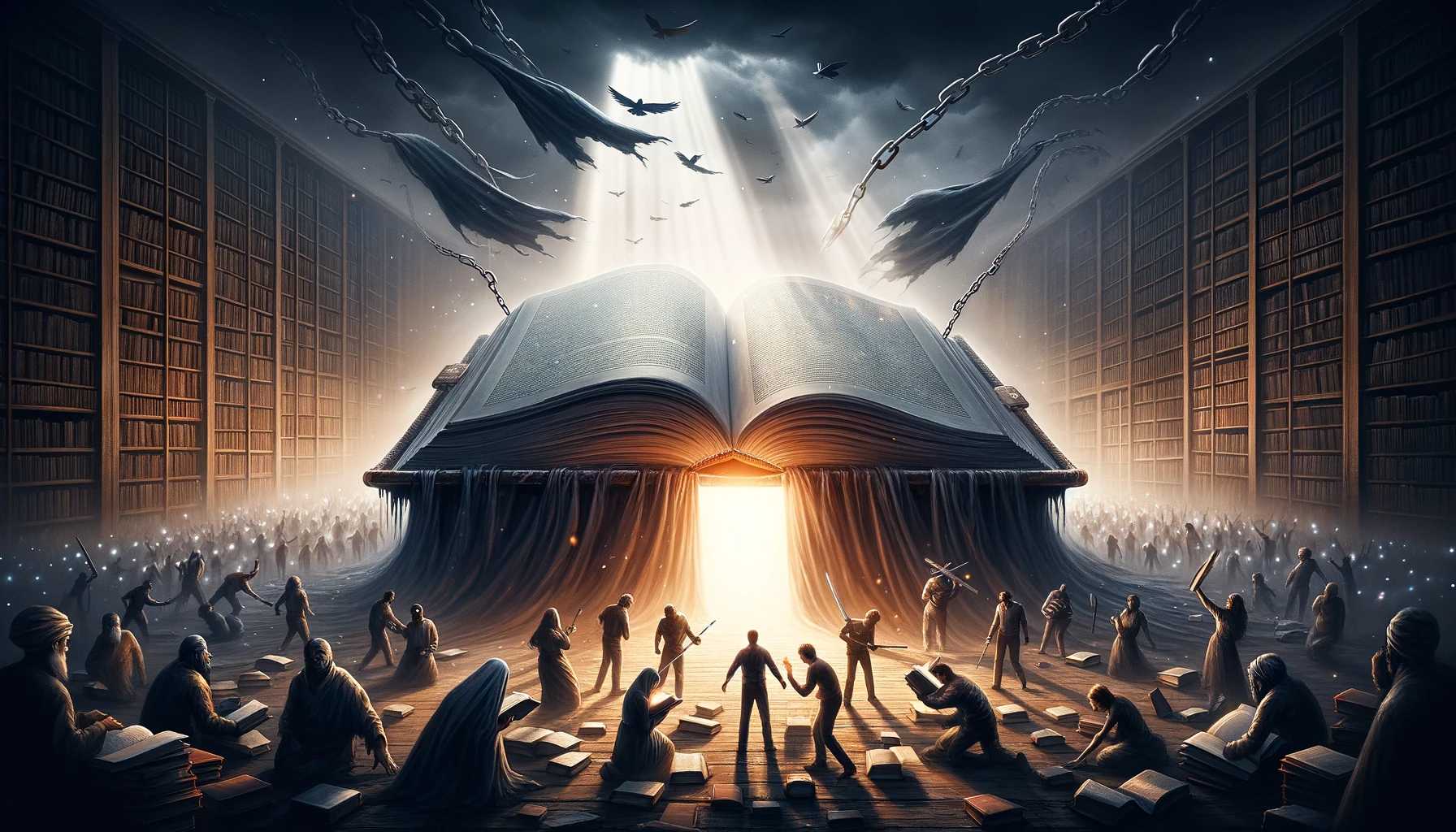The Impact of Censorship on Literature
Introduction
Literature has long been a battleground for ideas, a space where writers and readers alike can grapple with complex issues, challenge societal norms, and explore the depths of the human experience. However, throughout history, literature has also been subjected to censorship, as authorities seek to control and regulate the flow of information and ideas. In this blog post, we will delve into the impact of censorship on literature, examining how it has shaped the writing and dissemination of books, as well as its broader implications for freedom of expression and cultural discourse.
Historical Context: From Banned Books to Burned Manuscripts
The practice of censoring literature dates back centuries, with authorities often targeting books that were deemed subversive, obscene, or heretical. In ancient times, rulers and religious leaders sought to suppress dissenting voices by banning or destroying works that challenged their authority or questioned prevailing beliefs.
One of the most infamous examples of censorship in history is the burning of the Library of Alexandria in Egypt, which was home to countless scrolls and manuscripts containing knowledge from across the ancient world. The destruction of the library by Julius Caesar and later by religious zealots marked a significant loss for human civilization, as countless works of literature and philosophy were lost to the flames.
Moreover, throughout the Middle Ages and the Renaissance, books deemed heretical or blasphemous were subject to censorship by religious authorities, with authors like Galileo Galilei and Giordano Bruno facing persecution for their scientific and philosophical writings. The invention of the printing press in the 15th century only heightened concerns about the spread of "dangerous" ideas, leading to increased censorship and regulation of the printing industry.
Modern Challenges: Banned Books and Cultural Taboos
While censorship has evolved in form and scope over the centuries, it remains a pervasive issue in the modern world, with governments, religious institutions, and special interest groups seeking to control access to information and ideas. In many countries, books continue to be banned or censored for a variety of reasons, including political dissent, religious intolerance, and cultural taboos.
One of the most common forms of censorship in the modern era is the banning of books in schools and libraries. Books that are deemed inappropriate for young readers or that contain controversial themes or language are often subject to challenges and censorship by concerned parents or community members. Classic works of literature like "To Kill a Mockingbird" by Harper Lee and "The Catcher in the Rye" by J.D. Salinger have been banned or challenged in numerous schools and libraries across the United States due to their depictions of racism, violence, and sexuality.
Moreover, censorship in the digital age presents new challenges and opportunities for governments and authorities to control the flow of information and ideas. In countries with strict internet censorship laws, websites, blogs, and social media platforms are often subject to censorship and surveillance, with users facing repercussions for sharing "sensitive" or "subversive" content.
Impacts on Writers and Readers: Silencing Voices, Limiting Perspectives
The impact of censorship on literature extends far beyond the confines of the printed page, affecting writers, readers, and the broader cultural landscape. For writers, censorship can stifle creativity, self-expression, and the pursuit of truth, as they are forced to navigate a minefield of taboos and restrictions. Authors who dare to challenge prevailing beliefs or question authority risk censorship, persecution, and even imprisonment for their words.
Moreover, censorship can also have a chilling effect on readers, limiting their access to diverse perspectives, ideas, and experiences. When books are banned or censored, readers are deprived of the opportunity to engage with challenging or controversial ideas, to broaden their horizons, and to develop critical thinking skills. Moreover, censorship can also foster an environment of fear and self-censorship, as writers and readers alike hesitate to explore controversial topics or express dissenting opinions for fear of reprisal.
Furthermore, censorship can also have broader implications for freedom of expression and cultural discourse. When governments or authorities seek to control the flow of information and ideas, they undermine the principles of democracy and open society, stifling debate, and dissent and perpetuating ignorance and intolerance. In societies where censorship is rampant, citizens are denied the right to free speech and free thought, and the seeds of tyranny and oppression are sown.
Conclusion
In conclusion, the impact of censorship on literature is profound and far-reaching, shaping the writing and dissemination of books and influencing cultural attitudes and values. Throughout history, literature has been subjected to censorship by authorities seeking to control and regulate the flow of information and ideas. From ancient times to the modern era, books have been banned, burned, and censored for a variety of reasons, ranging from political dissent to religious intolerance.
Moreover, the impact of censorship extends beyond the confines of the printed page, affecting writers, readers, and the broader cultural landscape. For writers, censorship can stifle creativity, self-expression, and the pursuit of truth, while readers are deprived of the opportunity to engage with diverse perspectives and ideas. Furthermore, censorship can also have broader implications for freedom of expression and cultural discourse, undermining the principles of democracy and open society.
As writers, readers, and advocates for freedom of expression, we must remain vigilant in the face of censorship, challenging attempts to silence voices and suppress ideas. By defending the right to free speech and free thought, we can ensure that literature continues to serve as a powerful tool for exploring the complexities of the human experience, challenging prevailing beliefs, and fostering empathy, understanding, and social change.






